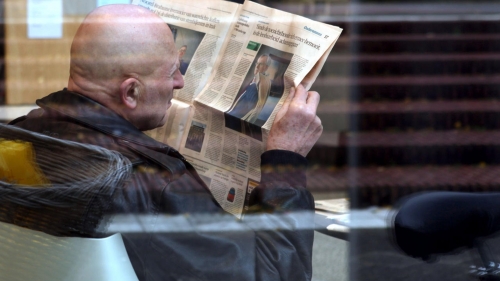
Presseschau - Dezember 2017
Einige Links. Bei Interesse anklicken…
AUßENPOLITISCHES
Durch Steuern
EU-Parlamentspräsident fordert Haushalts-Verdoppelung
https://jungefreiheit.de/politik/deutschland/2017/eu-parl...
European Union, Euro-skepticism, Western Civilization, Eurasianism and Slavic World
Boris Nad (Serbia) interviews Robert Steuckers (Brussels)
http://euro-synergies.hautetfort.com/archive/2017/11/26/e...
Orbán forciert Verschwörungs-Kampagne gegen Soros
https://www.welt.de/finanzen/article171004307/Orban-forci...
Ungarn : Soros schlägt gegen Orbán zurück
http://www.faz.net/aktuell/politik/ausland/soros-schlaegt...
Offenes Rennen
Katalonien: Wer die Wahl hat, hat die Qual
https://www.tichyseinblick.de/kolumnen/aus-aller-welt/kat...
Spanien
Der Protest in Katalonien flammt wieder auf
Die Festnahme von Politikern und Separatistenführern empört selbst Katalanen, die gegen die Unabhängigkeit sind. Zu Hunderttausenden demonstrieren Menschen für ihre Freilassung.
http://www.augsburger-allgemeine.de/politik/Der-Protest-i...
Deutschland bezuschusst U-Boot-Lieferung an Israel
http://www.faz.net/aktuell/wirtschaft/unternehmen/deutsch...
Kampf gegen den Terrorismus
Der IS verliert die letzte Stadt in Syrien
Die syrische Armee und mir ihr verbündete Milizen haben die letzte Hochburg der Terrormiliz IS in dem Land eingenommen. Die letzten verbliebenen IS-Kämpfer zogen sich aus der ostsyrischen Grenzstadt Albu Kamal zurück.
http://www.dw.com/de/der-is-verliert-die-letzte-stadt-in-...
Krieg in Syrien
USA ermöglichten IS-Kämpfern Flucht aus Rakka
https://jungefreiheit.de/politik/ausland/2017/usa-ermoegl...
Syrien-Konflikt
Putin empfängt Assad: „Syrische Flüchtlinge können zurückkehren
https://jungefreiheit.de/politik/deutschland/2017/putin-e...
Kuwait Airways
Zweierlei Maß
von Jürgen Liminski
https://jungefreiheit.de/debatte/kommentar/2017/zweierlei...
Wochenlange Proteste
Islamisten erzwingen Rücktritt von Pakistans Justizminister
https://jungefreiheit.de/politik/ausland/2017/islamisten-...
Ägypten: Anschlag auf Moschee - mindestens 155 Tote
https://www.gmx.net/magazine/politik/aegypten-anschlag-mo...
(Zu Donald Trump…)
Ein Jahr nach der Wahl
Der Gottseibeiuns der Eliten
von Michael Paulwitz
https://jungefreiheit.de/debatte/kommentar/2017/der-gotts...
Islamkritik
Trumps Tweets bringen May in Rage
https://jungefreiheit.de/politik/ausland/2017/trumps-twee...
Sonntagsheld (36) – Burenland ist freies Land!
https://sezession.de/57472/sonntagsheld-(36)-%E2%80%93-bu...!
Der Niedergang Simbabwes unter Mugabe beispielhaft für den schwarzen Kontinent
Das Gesicht des afrikanischen Scheiterns
http://www.pi-news.net/das-gesicht-des-afrikanischen-sche...
Jubel auf Simbabwes Straßen
Mugabe tritt zurück
In Simbabwe endet eine Ära. Robert Mugabe erklärt in einem Brief seinen Rücktritt. In der Hauptstadt ertönen Hupkonzerte, die Menschen feiern die Nachricht vom Rückzug des Langzeitherrschers.
https://www.n-tv.de/politik/Mugabe-tritt-zurueck-article2...
(Krise der Religion in Japan)
Dinosaurier-Statue beschützt jahrhundertealten japanischen Tempel
https://deutsch.rt.com/newsticker/60398-dinosaurier-statu...
Chinesen verspotten Merkel als naiven weißen Gutmenschen
https://www.welt.de/politik/ausland/article170917663/Chin...
Der Westen ist blind
Wenn Engel fallen – Der Islam erobert Birma
https://www.tichyseinblick.de/kolumnen/spahns-spitzwege/w...
„Ehe für alle“
Australier stimmen für gleichgeschlechtliche Ehe
https://jungefreiheit.de/politik/ausland/2017/australier-...
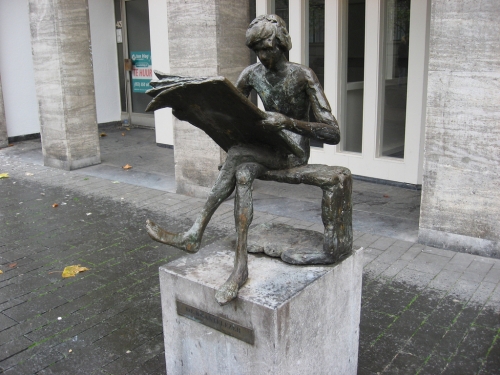
INNENPOLITISCHES / GESELLSCHAFT / VERGANGENHEITSPOLITIK
Merkel – ein Rückblick
Die Ära Merkel geht zu Ende. Zum Glück, denn sie steht für den sinnentleerten Machterhalt einer Monarchin.
http://plus.faz.net/feuilleton/2017-11-16/d5637e1d071d2d6...
Akute Ignoranz
Politisch gewollte Staatsverwahrlosung
http://www.tichyseinblick.de/kolumnen/goergens-feder/poli...
Agenda 2050: Der neue Totalitarismus
Die Vision, die Merkel bewegt
http://www.freiewelt.net/nachricht/die-vision-die-merkel-...
CSU-Landesgruppenchef Dobrindt - Jamaika soll gegen AfD eintreten
https://www.zdf.de/nachrichten/heute/csu-landesgruppenche...
Geplatzte Verhandlungen
Grüne und Union enttäuscht über Jamaika-Aus
https://jungefreiheit.de/politik/deutschland/2017/gruene-...
Jamaika-Aus
Schwarzgrüner Kuschelkurs
https://jungefreiheit.de/debatte/kommentar/2017/schwarzgr...
In Deutschland muss wieder Politik gemacht werden
Nicht die FDP, sondern die AfD lässt Merkel scheitern!
http://www.pi-news.net/nicht-die-fdp-sondern-die-afd-laes...
Sieg!
Die FAZ hat kürzlich den Verlauf der gescheiterten Verhandlungen zur Jamaika-Koalition anhand von Hintergrundgesprächen nachgezeichnet. Wenn die folgende Szene nicht auf gezielten Falschinformationen beruht, können wir feiern.
https://sezession.de/57491/?komplettansicht=1
AfD im Bundestag
Realos und Fundis
von Christian Vollradt
https://jungefreiheit.de/debatte/kommentar/2017/realos-un...
Pro Deutschland
Wollen keine AfD-Konkurrenz sein: Rechtspopulistische Splitterpartei löst sich auf
http://www.focus.de/politik/deutschland/pro-deutschland-w...
Weidel (AfD) erste Rede zum ersten AfD-Antrag im Bundestag
https://www.youtube.com/watch?time_continue=16&v=9dmQ...
Warnzeichen in Görlitz, Offenbach und anderswo
Siemens kümmert kein Berliner Balkon
http://www.pi-news.net/siemens-kuemmert-kein-berliner-bal...
Offener Brief "Eine Frage des Respekts"
Ein Jahr nach dem Anschlag am Breitscheidplatz werfen Angehörige aller zwölf Todesopfer der Regierung Versagen vor. Der SPIEGEL dokumentiert ihren offenen Brief an die Kanzlerin.
http://www.spiegel.de/politik/deutschland/anschlag-in-ber...
„Mindestens grenzwertig“
Kritik an Vergabe der Leuschner-Medaille an Ex-Ministerpräsident Koch
https://www.op-online.de/hessen/kritik-vergabe-leuschner-...
Globales Ranking
Alle lieben Deutschland – nur die Deutschen nicht
https://www.welt.de/wirtschaft/article170670115/Alle-lieb...
Das nächste Schlachtfeld
In den Verhandlungen der Jamaika-Koalitionäre geht es besonders heftig beim Thema Migration zu: Darf es eine Obergrenze geben? Wie viel Familiennachzug verkraftet das Land? Im Schatten dieser Auseinandersetzung formieren sich Politiker eher linker Parteien für eine Debatte, die in den nächsten vier Jahren aufbrechen und Deutschland möglicherweise noch mehr verändern wird als die Einwanderungswelle seit 2015.
http://www.achgut.com/artikel/das_naechste_schlachtfeld
Innenministerkonferenz
De Maizière will Lauschangriff drastisch erweitern
https://jungefreiheit.de/politik/deutschland/2017/de-maiz...
Bundeswehr mit Nachwuchssorgen
Immer weniger Bewerber für freiwilligen Wehrdienst
http://www.manager-magazin.de/politik/deutschland/freiwil...
Altena
Mögliches politisches Motiv
Merkel und Maas verurteilen Messerattacke auf Bürgermeister
https://jungefreiheit.de/politik/deutschland/2017/merkel-...
Messerangriff auf Bürgermeister von Altena: Bigotterie und Doppelmoral
https://juergenfritz.com/2017/11/28/messerangriff-auf-bue...
Das Fake-Attentat in Altena
https://politsatirischer.blogspot.de/2017/11/vor-genau-24...
Gedenkstätte Hohenschönhausen
DDR-Opferverband verteidigt Aufnahme Pazderskis
https://jungefreiheit.de/politik/deutschland/2017/ddr-opf...
Bezirkschef zieht in ein neues Büro Von Dassel macht Platz für Geschichte
Im Rathaus Tiergarten eröffnen zwei neue Ausstellungen. Eine davon haben Schüler gestaltet.
http://www.tagesspiegel.de/berlin/bezirkschef-zieht-in-ei...
Gedenkpolitik
AfD lehnt Denkmal für polnische NS-Opfer ab
https://jungefreiheit.de/politik/deutschland/2017/afd-leh...
(Horror. Schnellstmögliche Entfernung…)
Hakenkreuz auf Sportplatz: Baggerfahrer macht in Hamburg ungewöhnlichen Fund
https://www.gmx.net/magazine/panorama/hakenkreuz-sportpla...

LINKE / KAMPF GEGEN RECHTS / ANTIFASCHISMUS / RECHTE
(Aktion angeblicher "Künstler" gegen Björn Höcke)
Aktivisten fordern: Björn Höcke soll sich auf Knien entschuldigen
https://www.gmx.net/magazine/politik/akivisten-bjoern-hoe...
Zentrum für politische Schönheit
Staatskunst
von Thorsten Hinz
https://jungefreiheit.de/debatte/kommentar/2017/staatskun...
Björn Höcke vs. Das Zentrum für moralischen Psychoterror
https://sezession.de/57485/?komplettansicht=1
„Zentrum für politische Schönheit“ (ZPS) – Orwell in Reinform
http://www.pi-news.net/zentrum-fuer-politische-schoenheit...
Schuldsekte baut Holocaust-Denkmal vor Höckes Haus
https://www.youtube.com/watch?v=gTw29yS_Fd8
Zentrum für politische Schönheit
Landtagspräsident verurteilt Anti-Höcke-Aktion
https://jungefreiheit.de/politik/deutschland/2017/landtag...
„Denkmal der Schande“ : Stelenfeld neben Haus von Björn Höcke vorerst geschlossen
http://www.faz.net/aktuell/feuilleton/debatten/denkmal-de...
Bespitzlung
Weiter Streit um Anti-Höcke-Aktion
https://jungefreiheit.de/politik/deutschland/2017/weiter-...
K-Gruppen und Terrorhelfer
Wenn die AfD eine radikale Partei sein soll, was waren dann die frühen Grünen?
von Karlheinz Weißmann
https://jungefreiheit.de/politik/deutschland/2017/wenn-di...
Antrittsbesuch in Sachsen : Steinmeier ruft zu Kampf gegen rechts auf
http://www.faz.net/aktuell/politik/sachsen-frank-walter-s...
https://jungefreiheit.de/politik/deutschland/2017/steinme...
Berlin
Staatliche Fördermittel
„Kampf gegen Rechts“: Kosten steigen auf 116 Millionen Euro
https://jungefreiheit.de/politik/deutschland/2017/kampf-g...
Wien
Finanzierung beendet
Linkes Rechercheportal nach Grünen-Niederlage offline
https://jungefreiheit.de/politik/ausland/2017/linkes-rech...
(Zu Gerald Hensel…)
Denunziantentum heißt jetzt Zivilcourage
http://www.achgut.com/artikel/denunziantentum_heisst_jetz...
AfD und die Neue Rechte : Sie nennen es konservativ
von Justus Bender
http://www.faz.net/aktuell/politik/inland/afd-gibt-oeffen...
Hajo Funke auf 3sat – neutraler Extremismusexperte?
von Benedikt Kaiser
https://sezession.de/57486/hajo-funke-auf-3sat-%E2%80%93-...?
Thomas Wagner ("Die Angstmacher") über die "Neue Rechte" | Frankfurter Buchmesse 2017
https://www.youtube.com/watch?v=Bj2lHGYsFzc
Verfassungsschutz
Telefonüberwachung von Linksextremisten in Berlin eingestellt
https://jungefreiheit.de/politik/deutschland/2017/telefon...
Baden-Württemberg
AfD wirft Innenminister Unkenntnis über linksextreme Szene vor
https://jungefreiheit.de/politik/deutschland/2017/afd-wir...
Kampf gegen Linksextremismus
CDU-Innenexperten: Staatliche Förderung linksextremer Keimzellen beenden
https://jungefreiheit.de/politik/deutschland/2017/cdu-inn...
Inlandgeheimdienst
Linken-Abgeordnete wird vom Verfassungsschutz beobachtet
https://jungefreiheit.de/politik/deutschland/2017/linken-...
Grotesker Aufzug
Kommunisten rollen mit russischem Panzer durch Berlin
https://jungefreiheit.de/politik/deutschland/2017/kommuni...
(Bizarre Buchmesse-Selbstinszenierung von Alt-68er Achim Bergmann)
Video-Beweis
Rechter Killer-Ninja schlägt APO-Rentner nieder
https://jungefreiheit.de/kultur/2017/rechter-killer-ninja...
Nach linksextremen Attacken
AfD-Nachwuchspolitiker unterliegt im Gerichtsstreit um Mietvertrag
https://jungefreiheit.de/politik/deutschland/2017/afd-nac...
(Kuscheljustiz gegen links)
Selbstanzeige
G20-Plünderer zur Bewährung verurteilt
https://jungefreiheit.de/politik/deutschland/2017/g20-plu...
Berlin
Hotel Orania
Betreiber spricht von Hetze der linken Szene und kritisiert Politiker
https://www.berliner-zeitung.de/berlin/hotel-orania-betre...
Linksextreme Kräfte formieren sich gegen den AfD-Bundesparteitag – Gewaltexzesse befürchtet
https://www.unzensuriert.de/content/0025459-Linksextreme-...
Linksextremismus
Anschlag auf Haus von Hamburgs SPD-Fraktionschef
https://jungefreiheit.de/politik/deutschland/2017/anschla...
Diskussionveranstaltung an der Uni
Proteste in Köln: Studenten schreien Polizeigewerkschafter Wendt nieder
http://www.focus.de/politik/deutschland/das-ist-keine-pro...
Proteste gegen Parteitag
„Die AfD angreifen – mit allen notwendigen Mitteln!“
von Felix Krautkrämer
https://jungefreiheit.de/politik/deutschland/2017/die-afd...
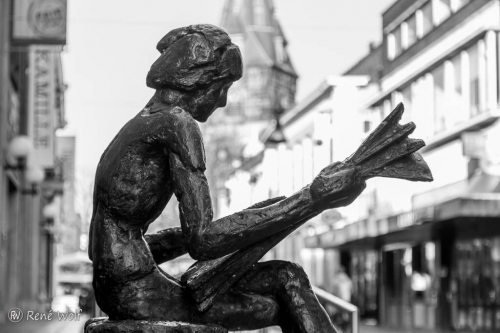
EINWANDERUNG / MULTIKULTURELLE GESELLSCHAFT
US-Studie
Zahl der Moslems in Deutschland könnte sich verdreifachen
https://jungefreiheit.de/politik/deutschland/2017/zahl-de...
Neun Stockwerke neues Deutschland
Ein Feature über ein Haus in Gladbeck
http://www.ard.de/home/radio/Neun_Stockwerke_neues_Deutsc...
Respekt- und disziplinlos
Berliner Polizeischüler schockieren Ausbilder
http://www.n-tv.de/politik/Berliner-Polizeischueler-schoc...
Neue Vorwürfe gegen Berliner Polizei
Polizeischüler sollen aus kriminellen Großfamilien stammen
http://www.tagesspiegel.de/berlin/neue-vorwuerfe-gegen-be...
Anonymer Brief kursiert
LKA-Beamter warnt: Berliner Polizei wird von kriminellen Clans unterwandert
http://www.focus.de/politik/deutschland/anonymer-brief-lk...
Zustände in Berliner Polizei-Akademie
Die lange Liste der Vorwürfe gegen die Berliner Polizei-Vizepräsidentin
http://www.focus.de/politik/deutschland/zustaende-in-berl...
Meinung
Die unterwanderte Polizei
von Boris T. Kaiser
https://jungefreiheit.de/debatte/kommentar/2017/die-unter...
Hurra, wir haben uns integriert!
Von Henryk M. Broder
http://www.achgut.com/artikel/hurra_wir_haben_uns_integri...
„Koordinierter Angriff“
Flüchtlinge stürmen spanische Küsten
https://jungefreiheit.de/politik/ausland/2017/fluechtling...
Jugendliche Einwanderer randalieren in Brüssel
https://jungefreiheit.de/politik/ausland/2017/jugendliche...
https://www.youtube.com/watch?v=WJJYr7VjRvs
https://www.youtube.com/watch?v=IqJDOX-p95Q
Maya und Isabel Schayani geben Tipps zur Einwanderung nach Deutschland
WDR sendet „Einladung“ an arabische Welt
http://www.pi-news.net/wdr-sendet-einladung-an-arabische-...
Nach Jamaika-Aus
Göring-Eckardt: Mit uns wäre es Flüchtlingen besser gegangen
https://jungefreiheit.de/politik/deutschland/2017/goering...
Ohne Behördenkontakt
In Deutschland werden Hunderttausende Untergetauchte vermutet
https://www.welt.de/politik/deutschland/article170281634/...
Fast jeder zweite unbegleitete Minderjährige ist über 18
https://jungefreiheit.de/politik/deutschland/2017/fast-je...
Trotz Rückfallgefahr
Kommunen müssen kriminelle Asylbewerber aufnehmen
https://jungefreiheit.de/politik/deutschland/2017/kommune...
Niedersachsen: Jobcenter fordert von Invasionshelfern Sozialleistungen zurück
Bahnhofsklatscher schockiert: Sie sollen für ihre Schützlinge zahlen
http://www.pi-news.net/bahnhofsklatscher-schockiert-sie-s...
Sprachkurse für Abgelehnte
De Maizière wirft Berlin Abschiebe-Sabotage vor
https://jungefreiheit.de/politik/deutschland/2017/de-maiz...
Jamaika-Sondierungen
Union deutet Kompromißbereitschaft beim Familiennachzug an
https://jungefreiheit.de/politik/deutschland/2017/union-d...
Identitäre Aktion
Aktionsvideo | Erdogan - Hol deine Türken ham!
https://www.youtube.com/watch?v=ob-YpAs94YE
Facebook löscht Kommentar zu rassistischer Multi-Kulti-Propaganda
Martin Sellners Antwort auf die „Typisch Deutsch?“-Kampagne
http://www.pi-news.net/martin-sellners-antwort-auf-die-ty...
Auch ohne Arbeit besser als in der Heimat
Von Thilo Sarrazin
http://www.achgut.com/artikel/auch_ohne_arbeit_besser_als...
"Die Menschen spüren, dass Europa insgesamt die Kontrolle verloren hat"
Der frühere polnische Außenminister Radoslaw Sikorski kritisiert im Interview der NZZ die Flüchtlingspolitik von Angela Merkel.
https://www.nzz.ch/international/die-menschen-spueren-das...
Karl Lagerfeld nennt Flüchtlinge "Feinde" der Juden
Der deutsche Modedesigner Karl Lagerfeld sorgt mit einer harschen Kritik an Angela Merkels Flüchtlingspolitik für Aufsehen.
https://bazonline.ch/panorama/leute/karl-lagerfeld-nennt-...
Staatliches Gewaltmonopol: Eine persönliche Geschichte
von Johannes Konstantin Poensgen
https://sezession.de/57475/das-problem-des-staatlichen-ge...
Radikale Prediger
Emirate kritisieren lasche Kontrollen von deutschen Moscheen
https://jungefreiheit.de/politik/ausland/2017/emirate-kri...
Düsseldorf
Polizisten verletzt
Kurdische Gemeinde distanziert sich von Ausschreitungen
https://jungefreiheit.de/politik/deutschland/2017/kurdisc...
Frankfurt
Über den Zaun an der Startbahn West geklettert
Aufregung am Flughafen: Flüchtling wollte nach Italien
https://www.op-online.de/region/frankfurt/nach-aufregung-...
Essener Hauptbahnhof
Bis zu 200 Einwanderer sprengen Halloween-Veranstaltung
https://jungefreiheit.de/politik/deutschland/2017/bis-zu-...
Spezialeinheit für den Alex
Ein Platz unter Polizeischutz
https://www.berliner-kurier.de/berlin/polizei-und-justiz/...
Zwei „psychisch labile“ Merkel-Gäste
Nürnberg-Südstadt: Schüsse, Macheten und „Allahu Akbar“-Schreie
http://www.pi-news.net/nuernberg-suedstadt-schuesse-mache...
Audi-Zentrum Landshut: Mein Auto, mein Land, meine Psychose
Syrischer „Flüchtling“ fordert sein Auto: „Frau Merkel bezahlen…“
http://www.pi-news.net/syrischer-fluechtling-fordert-sein...
Polizeifahndung
Brutaler Angriff: Polizei sucht Schläger vom Alexanderplatz
Mit Fotos aus der Überwachungskamera sucht die Polizei mehrere Personen, die am Alexanderplatz zwei Männer verletzt haben sollen.
https://www.morgenpost.de/berlin/polizeibericht/article21...
Berliner Kinderbauernhof: Mann (23) vergeht sich sexuell an Pony
https://rtlnext.rtl.de/cms/berliner-kinderbauernhof-mann-...
http://www.wochenblatt.de/boulevard/regensburg/artikel/21...
Italienische Staatsbürger
„Spaß erlaubt“: Polizei nimmt Obdachlosen-Anzünder fest
https://jungefreiheit.de/kultur/gesellschaft/2017/spass-e...
(Die Überschrift ist natürlich irreführend. Es handelt sich nicht um "hessische Autoknacker", sondern, wie der Artikel dann zeigt "organisierte Banden aus Osteuropa", die – nicht nur – in Hessen Autos stehlen.)
Hessische Autoknacker spezialisieren sich: Vor allem Lenkräder und Airbags sind begehrt
http://www.allgemeine-zeitung.de/lokales/polizei/hessisch...
Kein Aufschrei und keine Lichterketten der üblichen "Rassismus-Riecher"
Düsseldorf: Araber-Gang attackiert Passanten mit Messerstichen
http://www.pi-news.net/duesseldorf-araber-gang-attackiert...
Falsche Identität und Todesdrohungen
Dortmund: Polizei nimmt grapschenden Afrikaner fest
https://jungefreiheit.de/kultur/gesellschaft/2017/dortmun...
Merkel-Gäste zeigen sich erkenntlich: Landfriedensbruch - Körperverletzung - Sachbeschädigung
Essen: Syrer zerlegen Tchibo-Filiale
http://www.pi-news.net/essen-syrer-zerlegen-tchibo-filiale/
(Beim Kölner Stadt-Anzeiger sind es "Jugendliche". Erst im letzten Abschnitt wird im Text auf die syrische Herkunft hingewiesen. Immerhin.)
Essener Hauptbahnhof
Jugendliche zerlegen Tchibo-Filiale und verletzen Ladendetektiv https://www.ksta.de/region/essener-hauptbahnhof-jugendlic...
Blutige Folgen von Merkels Grenzöffnung
Das Opfer von Sachsenhausen klagt an
http://www.bff-im-roemer.de/index.php?id=44&no_cache=...
Ausländerkriminalität
Möglichst keine Details
http://sichtplatz.de/?p=9620
Bayern
Belästigungen und Diebstähle: Linke Bar sperrt Flüchtlinge aus
https://jungefreiheit.de/kultur/gesellschaft/2017/belaest...
Offenbach
Sicherheitsmaßnahmen werden verschärft
Punsch zwischen Betonpollern
https://www.op-online.de/leben/weihnachten-ere44823/beton...
Mann rast mit Pkw in Gruppe
Autoattacke mitten in Cuxhavens City
https://www.cn-online.de/stadt-land/news/autoattacke-mitt...
Bei Hausbesuch
Syrer vergewaltigt Sozialarbeiterin im Dienst
https://jungefreiheit.de/kultur/gesellschaft/2017/syrer-v...
Woman, 32, is left with a horrific head wound after three Asian thugs beat her in the street in a 'racially aggravated' attack
http://www.dailymail.co.uk/news/article-5130171/Woman-lef...
(Kriminalfälle-Sammlung)
Bunte Republik Deutschland
http://www.achgut.com/artikel/bunte_republik_deutschland
(Kriminalfälle-Sammlung)
Bunte Republik Deutschland, Fortsetzung
http://www.achgut.com/artikel/bunte_republik_deutschland_...
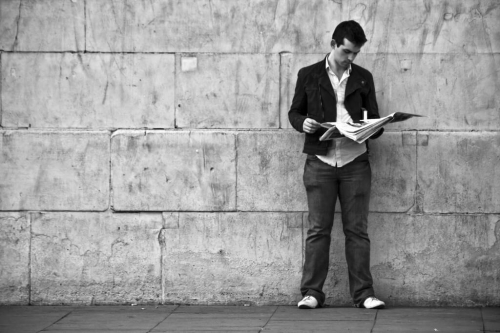
KULTUR / UMWELT / ZEITGEIST / SONSTIGES
Die tödliche Verwahrlosung der deutschen Hauptstadt
http://www.achgut.com/artikel/die_verwahrlosung_berlins_i...
Bibel-Museum in Washington D.C. eröffnet heute
https://www.pro-medienmagazin.de/gesellschaft/weltweit/20...
Freiheit im Internet
Zensur durch Regierungen nimmt zu
https://jungefreiheit.de/politik/ausland/2017/zensur-durc...
FDP-Wahlversprechen
Internetverband fordert Stop von Anti-Haß-Gesetz
https://jungefreiheit.de/politik/deutschland/2017/interne...
Gesetzesinitiative
AfD sagt NetzDG Kampf an
https://jungefreiheit.de/politik/deutschland/2017/afd-sag...
Anordnung
Zürcher Polizei darf Herkunft von Straftätern nicht mehr nennen
https://jungefreiheit.de/politik/ausland/2017/zuercher-po...
Schulen in Deutschland
„Sprachschwierigkeiten, schlimmste soziale Verhältnisse“
https://www.welt.de/politik/deutschland/article170324917/...
http://www.bff-frankfurt.de/artikel/index.php?id=1240
Deutsche Hochschulen
Gemeinschaft von Gläubigen
https://jungefreiheit.de/debatte/kommentar/2017/gemeinsch...
Das 3. Geschlecht und seine Folgen
Nicht das 3. Geschlecht ist das Problem. Der Umgang damit.
https://www.tichyseinblick.de/daili-es-sentials/nicht-das...
LGBT-Lobby
New Yorks U-Bahn-Ansprachen ab sofort geschlechtsneutral
https://jungefreiheit.de/politik/ausland/2017/new-yorks-u...
Nach Protest der Académie Française
Frankreich schafft geschlechtergerechte Schreibweise ab
https://jungefreiheit.de/politik/ausland/2017/frankreich-...
Sexismus
Macron will Maßnahmenpaket gegen Sexismus
https://jungefreiheit.de/politik/ausland/2017/macron-will...
Penny-Gayt
Endlich! Auch der Nikolaus outet sich als schwul
http://www.pi-news.net/endlich-auch-der-nikolaus-outet-si...
„Agent*In“
Linker Soziologe will Anti-Gender-Pranger fortführen
https://jungefreiheit.de/kultur/gesellschaft/2017/linker-...
Gender
Lehrer suspendiert, weil er Transgender-Schüler falsch ansprach
https://jungefreiheit.de/politik/ausland/2017/lehrer-susp...
Gendertheorie
Evangelische Kirche in Schweden macht Gott geschlechtsneutral
https://jungefreiheit.de/politik/ausland/2017/evangelisch...
Durchgeknallt
Hass-Aktivismus: Homosexueller Islamkritiker soll zum „Homophoben des Jahres 2017“ erklärt werden
https://philosophia-perennis.com/2017/10/21/hass-aktivism...
(Einsatz gegen Rassismus und Homophobie)
"Let's dance" im Big AppleStadt
New York hebt uraltes Tanzverbot auf
https://www.n-tv.de/panorama/Stadt-New-York-hebt-uraltes-...
(Zum Feminismus aus Sexualneid)
#menot
von Ellen Kositza
https://sezession.de/57484/#menot
Urteil gegen Ärztin
"Mehr als vorgestrig"
Die Ärztin Kristina Hänel muss eine Strafe zahlen, weil sie für Schwangerschaftsabbrüche geworben haben soll. Ihre Anwältin ist entsetzt. Die wichtigsten Fragen in diesem umstrittenen Fall.
http://www.spiegel.de/panorama/justiz/aerztin-kristina-ha...
Wegen Sexismus
Englische Mutter will „Dornröschen“ verbieten
https://jungefreiheit.de/politik/ausland/2017/englische-m...
Schweden
Pippi-Langstrumpf-Hörspiel sorgt für Polizeieinsatz
https://jungefreiheit.de/politik/ausland/2017/pippi-langs...
Hochschulverbandspräsident
„Das Klima der Political Correctness ist bedenklich“
https://jungefreiheit.de/kultur/gesellschaft/2017/das-kli...
Netzwerkdurchsetzungsgesetz
Die Säuberungswellen laufen an
https://jungefreiheit.de/kultur/medien/2017/die-saeuberun...
Leipzig Uni will gegen rassistischen Professor vorgehen
http://www.spiegel.de/lebenundlernen/uni/leipzig-minister...
Rassismusvorwürfe
Universität Leipzig prüft dienstrechtliche Schritte gegen Professor
https://jungefreiheit.de/kultur/gesellschaft/2017/univers...
(Dazu…)
Sonntagsheld (38) - Bringt die Geschütze in Stellung
https://sezession.de/57482/sonntagsheld-(38)bringt-die-ge...
Universität Leipzig: Linke Ideologie vs. Bildung
Linke Hetzjagd auf Leipziger Uniprofessor Rauscher geht weiter!
http://www.pi-news.net/linke-hetzjagd-auf-leipziger-unipr...
Klage gegen Konzerthaus-Chef
Gabalier scheitert vor Gericht
https://jungefreiheit.de/politik/deutschland/2017/andreas...
Der FAZ-Leninist Dietmar Dath und die „Schmarotzmonster“
https://sezession.de/57474/?komplettansicht=1
Die Verewigung der Vergangenheit
Immer wieder taucht der Begriff „Schuld“ in den politischen Diskussionen auf. Besonders beim Wort „Schuldkult“ regt sich in unserem Gastautor Felix Ludwig Widerspruch. Eine Gegenhypothese.
https://sezession.de/57476/?komplettansicht=1
Kanada
Antifa calls Jewish Defense League "Nazis"
https://www.youtube.com/watch?v=CGIW0I7hy4g
Vorwürfe gegen "Defend Europe"
Sellner: "Die linke Presse will uns das in die Schuhe schieben"
von Lukas Steinwandter
https://jungefreiheit.de/debatte/interview/2017/sellner-d...
Dekonstruktion, die AfD und Juli Zehs Molotowcocktail
https://sezession.de/57477/
Lust an der Empörung
"Moralismus mit totalitären Zügen"
Der Philosoph Alexander Grau plädiert dafür, mehr Dissens zuzulassen. Zur Zeit dominiere in gesellschaftlichen Debatten ein "Tonfall hochgeschraubter Moralität", kritisierte Grau im Dlf. Sachfragen kämen zu kurz. Die "Hegemonie des hypermoralistischen Diskurses" diskreditiere Nonkonformisten.
http://www.deutschlandfunk.de/lust-an-der-empoerung-moral...
Antisemitismus
Der Beginn der Unterwerfung
Von Mathias Döpfner
https://www.welt.de/debatte/kommentare/article170728821/D...
Islam und Wissenschaft. Ein Gegensatz? Gründe für den Niedergang der Blütezeit des Islams
http://lynxx-blog.blogspot.de/2011/06/islam-und-wissensch...
Sturz in den Schatten
Der Islam erlebte sein Goldenes Zeitalter, während Europa im Mittelalter stagnierte. In der Neuzeit aber fiel das Morgenland weit hinter das Abendland zurück - eine schlüssige Erklärung dafür steht noch aus.
http://www.spiegel.de/spiegel/spiegelgeschichte/d-7396692...
Vorbild Ibtihaj Muhammad
Mattel bringt Kopftuch-Barbie auf den Markt
https://jungefreiheit.de/kultur/gesellschaft/2017/mattel-...
Kopftuch-Hype
Lautloses Einsickern
von Thorsten Hinz
https://jungefreiheit.de/debatte/kommentar/2017/lautloses...
Bands, Lichteffekte, Lounge-Atmosphäre
So will die evangelische Kirche Jugendliche erreichen
https://jungefreiheit.de/kultur/2017/so-will-die-ekd-juge...
Hufftingtonpost - wo geistige Armut über den Islam nachdenkt
Akif Pirinçci: Der diskrete Charme der Frauenverachtung
http://www.pi-news.net/akif-pirincci-der-diskrete-charme-...
Kunstinstallation
Berlin-Kreuzberg: Attentäter von Paris wird als Märtyrer ausgestellt
https://jungefreiheit.de/politik/deutschland/2017/berlin-...
Pirelli-Kalender 2018 : „Alice im Wunderland“ mal anders
Naomi Campbell, Sean „Diddy“ Combs, Whoopi Goldberg und ein paar umwerfend schöne, schwarze Models: Der Pirelli-Kalender 2018 ist eine Hommage an schwarze Menschen. Fotograf Walker hofft, dass seine Botschaft ankommt.
http://www.faz.net/aktuell/stil/mode-design/pirelli-kalen...
Indonesien
Keine Selfies mehr mit Adolf
Museum schafft Hitler-Wachsfigur ab
http://www.n-tv.de/panorama/Museum-schafft-Hitler-Wachsfi...
In Trondheim
Norwegische Studenten feiern in Nazi-Uniformen
http://www.focus.de/panorama/welt/in-trondheim-norwegisch...
100 Jahre Kommunismus. 100 Millionen Tote.
http://www.achgut.com/artikel/100_jahre_kommunismus._100_...
Schönheit versus Nahostkrieg
Foto von Miss-Irak und Miss-Israel verursacht arabischen Shitstorm
http://www.pi-news.net/foto-von-miss-irak-und-miss-israel...
(Thorsten Schulte)
Umstrittener Bestsellerautor : Der Provokateur
http://www.faz.net/aktuell/wirtschaft/afd-sympathisant-un...
US-Sektengründer und Serienmörder
Charles Manson ist tot
http://www.spiegel.de/panorama/leute/charles-manson-serie...
Das war's. Diesmal mit: Narren, Närrinnen und Süßigkeiten
https://sezession.de/57479/das-war's.-diesmal-mit:-narren...
Neuer EU-Hammer: Warum Ihre Banking-PIN bald unsicher ist
http://www.chip.de/news/Neuer-EU-Hammer-Warum-Ihre-Bankin...
(Zum Smartphone- und Online-Wahn)
KenFM im Gespräch mit: Manfred Spitzer ("Cyberkrank!")
https://www.youtube.com/watch?v=dxicBvXv-DM
Geschichte, Archäologie
Fernhandel provozierte größte Schlacht der Bronzezeit
https://www.welt.de/geschichte/article171024374/Fernhande...
Ich hab damals zwei AfD-ler im Keller versteckt – Sätze, die wir in einigen Jahren en masse hören werden
https://juergenfritz.com/2017/11/26/ich-hab-zwei-afd-ler-...
(Wieder mal ein Film zur "Neonazi"-Gefahr…)
"Aus dem Nichts": Schaut auf dieses Gesicht
Fatih Akins Film "Aus dem Nichts" lebt ganz von den Großaufnahmen, die seine Hauptdarstellerin Diane Kruger zeigen.
http://www.zeit.de/2017/48/aus-dem-nichts-diane-kruger-fa...
(Und die nächste "Neonazi"-Klamotte…)
"Familie Braun"
ZDF-Serie gewinnt internationalen Emmy
Am Montagabend wurden die "International Emmys" in New York verliehen. Neben Großbritannien, dem Abräumer des Abends, kann sich auch Deutschland freuen: Die ZDF-Serie "Familie Braun" erhielt eine der begehrten Auszeichnungen.
https://www.stern.de/kultur/tv/zdf-serie--familie-braun--...
http://www.filmstarts.de/nachrichten/18515752.html
(Nun wird auch noch "Ötzi" für den Kampf gegen "Fremdenhass" missbraucht…)
Steinzeitmann
"Der Mann aus dem Eis": Jürgen Vogel begeistert als "Ötzi"
https://www.volksstimme.de/kino/filmbesprechung/der-mann-...

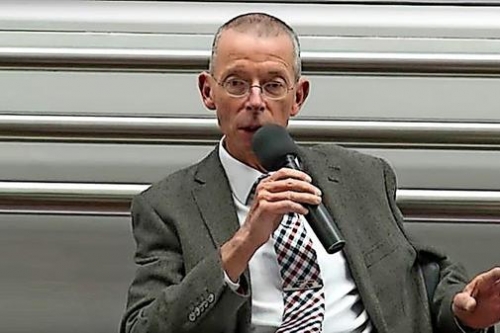





 del.icio.us
del.icio.us
 Digg
Digg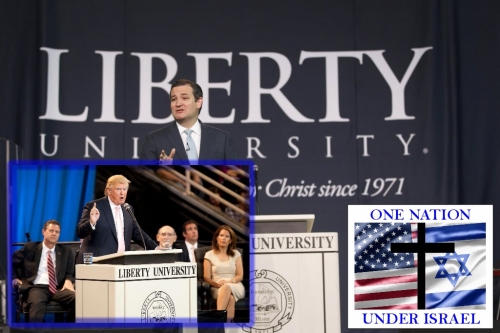

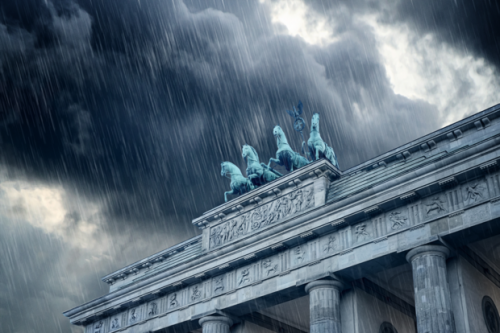


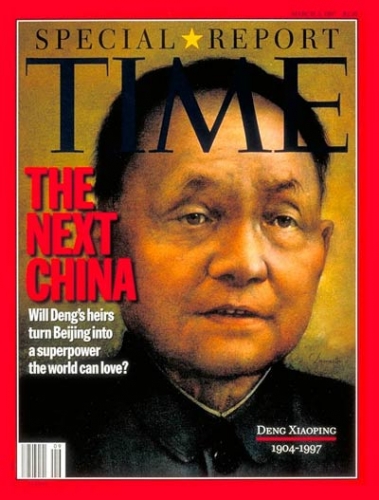
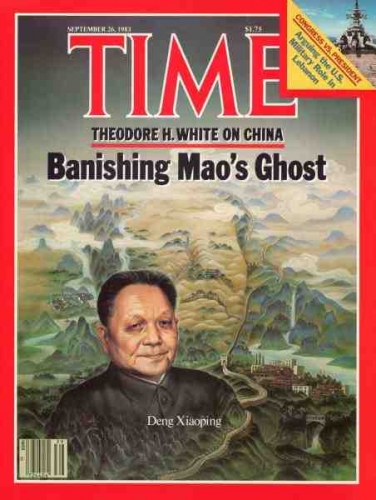
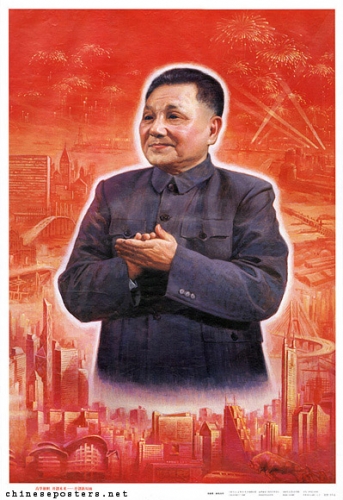 À l’heure où l’environnement économique et commercial international est de plus en plus complexe et hasardeux, le Comité central du PCC, avec le camarade Xi Jinping comme noyau dirigeant, a lancé en temps opportun le concept de développement innovant, coordonné, vert, ouvert et partagé. M. Xi a indiqué : « Nous devons prendre conscience que l’économie chinoise, en dépit du volume considérable qu’elle représente, n’est pas encore robuste et qu’en dépit de sa croissance très rapide, elle n’affiche pas une qualité optimale. Notre modèle de développement extensif qui misait principalement sur les facteurs de production, en particulier les ressources, pour stimuler la croissance économique et l’expansion du volume économique n’est pas durable. Il est temps d’accélérer notre transformation pour passer d’un développement essentiellement alimenté par les facteurs de production et l’investissement massif à un développement tiré par l’innovation. »
À l’heure où l’environnement économique et commercial international est de plus en plus complexe et hasardeux, le Comité central du PCC, avec le camarade Xi Jinping comme noyau dirigeant, a lancé en temps opportun le concept de développement innovant, coordonné, vert, ouvert et partagé. M. Xi a indiqué : « Nous devons prendre conscience que l’économie chinoise, en dépit du volume considérable qu’elle représente, n’est pas encore robuste et qu’en dépit de sa croissance très rapide, elle n’affiche pas une qualité optimale. Notre modèle de développement extensif qui misait principalement sur les facteurs de production, en particulier les ressources, pour stimuler la croissance économique et l’expansion du volume économique n’est pas durable. Il est temps d’accélérer notre transformation pour passer d’un développement essentiellement alimenté par les facteurs de production et l’investissement massif à un développement tiré par l’innovation. »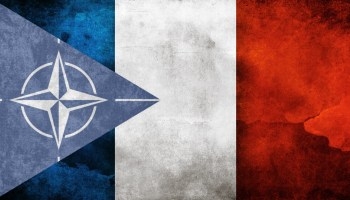
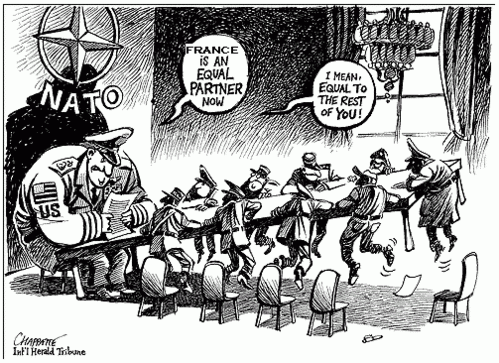
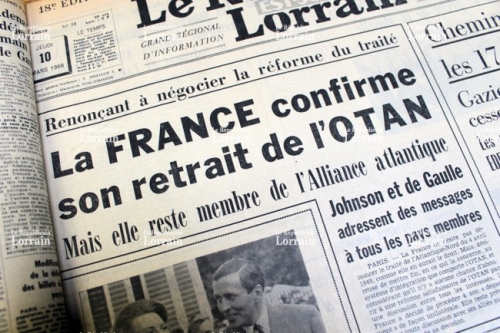

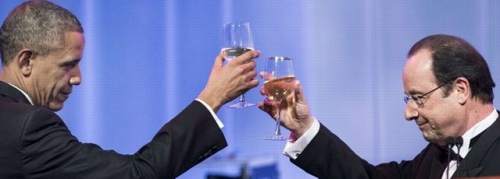





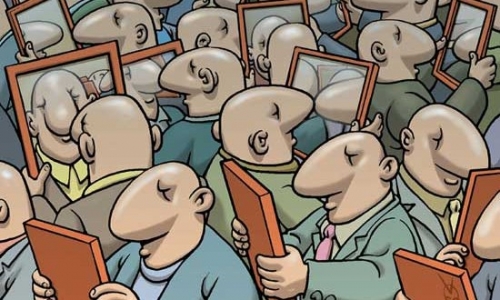
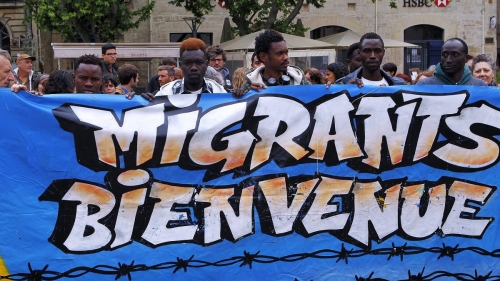

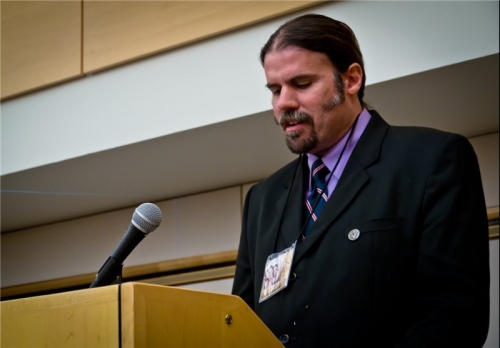
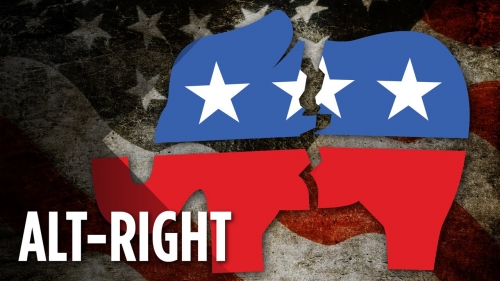
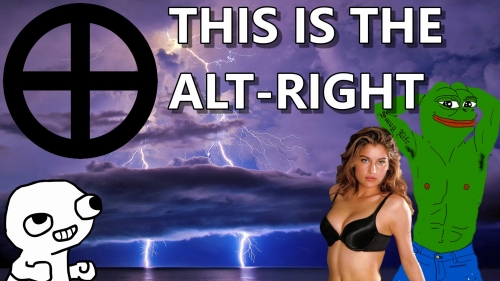

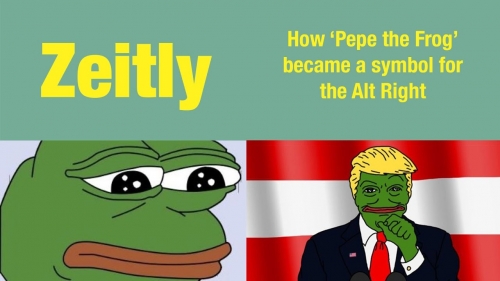
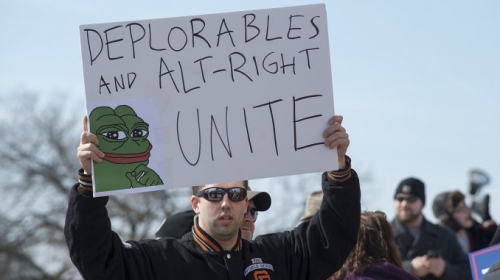

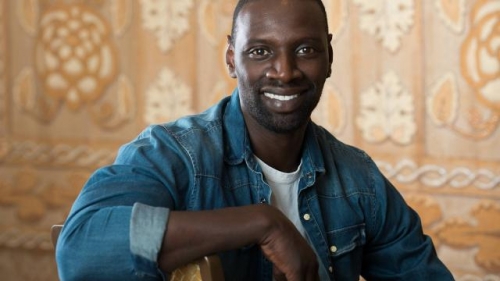



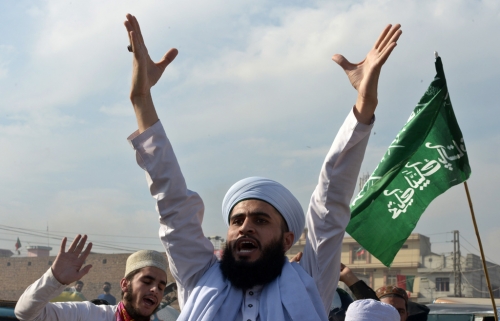

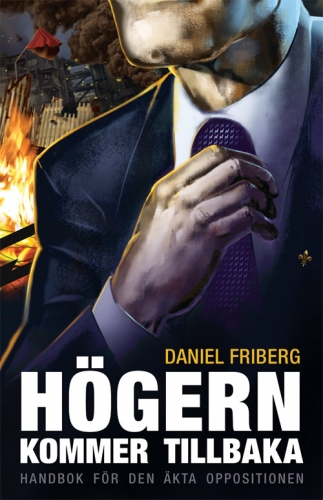 EM :
EM : 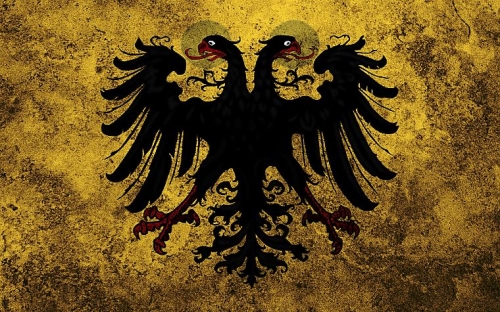

 The more radical underlying principles were adapted to the Zeitgeist of the Fifties and the Sixties by think tanks lead ultimately by the OSS (“Office of Strategic Studies”). This created the perverse corpus of May 68 that was launched into Germany and France. Both countries could resist in the Seventies although their societies were all the same contaminated by the bacillus that was eroding gradually their traditional psychological assets. A second wave had to be prepared to give all the Western societies the last blow to let their political bodies crumble down. Next to the May 68 ideology, more or less derived from the Frankfurt School, a new weapon was forged to destroy Europe (and partly the rest of the world) more efficiently. This weapon was the infamous Thatcherite neoliberalism. At the very end of the Seventies, neoliberalism (be it Thatcherism or Reaganomics) was celebrated as a new liberation ideology that was about to get rid of the political State-centered praxis. Neither the Christian democrats nor the social-democrats were able to resist staunchly and to remember their supporters that the Church doctrine (based on Thomas Aquino and Aristoteles) or the interventionist socialist tradition were genuinely hostile to such an unbridled liberalism. Economics became more important than politics. We entered at that very moment the so-called post-history where no marks were still to be found. Even worse, the corrupt “partitocratic” system, in which Christian democrats and social-democrats were painfully muddling through, prevented any rational reaction and any challenge from new parties, blocking the democratic process they so vehemently pretend to incarnate alone.
The more radical underlying principles were adapted to the Zeitgeist of the Fifties and the Sixties by think tanks lead ultimately by the OSS (“Office of Strategic Studies”). This created the perverse corpus of May 68 that was launched into Germany and France. Both countries could resist in the Seventies although their societies were all the same contaminated by the bacillus that was eroding gradually their traditional psychological assets. A second wave had to be prepared to give all the Western societies the last blow to let their political bodies crumble down. Next to the May 68 ideology, more or less derived from the Frankfurt School, a new weapon was forged to destroy Europe (and partly the rest of the world) more efficiently. This weapon was the infamous Thatcherite neoliberalism. At the very end of the Seventies, neoliberalism (be it Thatcherism or Reaganomics) was celebrated as a new liberation ideology that was about to get rid of the political State-centered praxis. Neither the Christian democrats nor the social-democrats were able to resist staunchly and to remember their supporters that the Church doctrine (based on Thomas Aquino and Aristoteles) or the interventionist socialist tradition were genuinely hostile to such an unbridled liberalism. Economics became more important than politics. We entered at that very moment the so-called post-history where no marks were still to be found. Even worse, the corrupt “partitocratic” system, in which Christian democrats and social-democrats were painfully muddling through, prevented any rational reaction and any challenge from new parties, blocking the democratic process they so vehemently pretend to incarnate alone. As the New Right writer Guillaume Faye had previously told it: France in the present-day situation is totally unable to reestablish law and order when riots spread in more than three or four big urban areas. The riots lasted the time needed to promote a new previously obscure petty politician, Nicolas Sarközy, who promised to wipe out the troublemakers in the suburbs and did of course absolutely nothing once in power. Charles Rivkin, US ambassador in France is the theorist of this “4th Generation Warfare” operations aiming at exciting migrant communities against law and order in France (see:
As the New Right writer Guillaume Faye had previously told it: France in the present-day situation is totally unable to reestablish law and order when riots spread in more than three or four big urban areas. The riots lasted the time needed to promote a new previously obscure petty politician, Nicolas Sarközy, who promised to wipe out the troublemakers in the suburbs and did of course absolutely nothing once in power. Charles Rivkin, US ambassador in France is the theorist of this “4th Generation Warfare” operations aiming at exciting migrant communities against law and order in France (see: 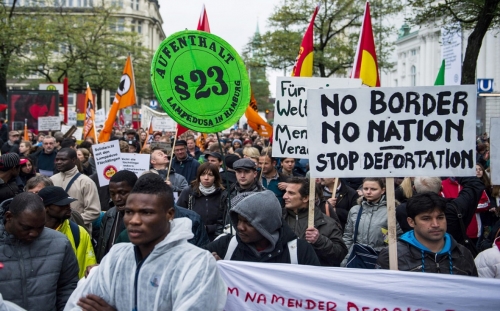
 Q.:
Q.: 
 Living within the territorial frames of an Empire means to fulfill a spiritual task: to establish on Earth a similar harmony as the one displayed by the celestial order. The dove symbolizing the Holy Spirit in Christian tradition has indeed the same symbolic task as the eagle in imperial tradition: assuring the link between the Uranic realm (Greek Uranus/Vedic Varuna) and the Earth (Gaia). As the subject of an Empire, I’m compelled to dedicate all my life trying to reach the perfection of the apparently perfect order of the celestial bodies. It’s an ascetic and military duty featured by the archangel Michael, also a figure derived from the man/bird beings of the Persian mythology that the Hebrews brought back from their Babylonian captivity. Emperor Charles V tried to incarnate this Chivalry’s ideal despite the petty human sins he consciously committed during his life. He remained truly human, a sinner, and dedicated all his efforts to keep the Empire alive, to make of it a dam against decay, which is the task of the “katechon” according to Carl Schmitt. No one better than the Frenchman Denis Crouzet has described this perpetual tension the Emperor lived in his marvelous book, Charles Quint, Empereur d’une fin des temps, Odile Jacob, Paris, 2016. I’m reading this very thick book over and over again which will help me to precise my imperial world view and to understand better what Schmitt meant when he considered Church and Empire as ‘katechonical” forces. This chapter is far from being closed.
Living within the territorial frames of an Empire means to fulfill a spiritual task: to establish on Earth a similar harmony as the one displayed by the celestial order. The dove symbolizing the Holy Spirit in Christian tradition has indeed the same symbolic task as the eagle in imperial tradition: assuring the link between the Uranic realm (Greek Uranus/Vedic Varuna) and the Earth (Gaia). As the subject of an Empire, I’m compelled to dedicate all my life trying to reach the perfection of the apparently perfect order of the celestial bodies. It’s an ascetic and military duty featured by the archangel Michael, also a figure derived from the man/bird beings of the Persian mythology that the Hebrews brought back from their Babylonian captivity. Emperor Charles V tried to incarnate this Chivalry’s ideal despite the petty human sins he consciously committed during his life. He remained truly human, a sinner, and dedicated all his efforts to keep the Empire alive, to make of it a dam against decay, which is the task of the “katechon” according to Carl Schmitt. No one better than the Frenchman Denis Crouzet has described this perpetual tension the Emperor lived in his marvelous book, Charles Quint, Empereur d’une fin des temps, Odile Jacob, Paris, 2016. I’m reading this very thick book over and over again which will help me to precise my imperial world view and to understand better what Schmitt meant when he considered Church and Empire as ‘katechonical” forces. This chapter is far from being closed. Crouzet explains in his book that the German and European Reformation wanted to “precipitate” things, aspiring at the same time to experiment lively the “eschaton”, the end of the world. This precipitation theology is the very first outward sign of modernism. Luther in a quite moderate way and the other actors of Reformation in an extreme way wanted the end of a world (of a historical continuity) they considered as profoundly infected by evil. Charles V, explains Crouzet, has an imperial and “katechonical” attitude. As an Emperor and a servant of God on Earth, he has to slow down the “eschaton” process to preserve his subjects from the afflictions of decay.
Crouzet explains in his book that the German and European Reformation wanted to “precipitate” things, aspiring at the same time to experiment lively the “eschaton”, the end of the world. This precipitation theology is the very first outward sign of modernism. Luther in a quite moderate way and the other actors of Reformation in an extreme way wanted the end of a world (of a historical continuity) they considered as profoundly infected by evil. Charles V, explains Crouzet, has an imperial and “katechonical” attitude. As an Emperor and a servant of God on Earth, he has to slow down the “eschaton” process to preserve his subjects from the afflictions of decay. I could add that a “precipitation theology or ideology” doesn’t express itself by all sorts of millennial pseudo-religious babbling claptrap like the one which is predicated for instance in Latin America but can also act as an economic fundamentalism like the neoliberal craze that affects America and Europe since the end of the Seventies. Puritanism can also quite often be reversed in its diametral contrary i. e. postmodernist debauch what explains that millennials, femens, pussy rioters, Salafists, neoliberal “banksters”, media moguls, color revolutionists, etc. follows on the international chessboard the same “4th Generation Warfare” agenda. Aim is to destroy all the dams civilization has set to serve the “Katechon” or the Aristotelian “Spoudaios”. We must define ourselves as the humble servants of the Katechon against the pretentious designs of the “precipitators”. This means serving the imperial powers and fighting the powers that are perverted by the “precipitators”. Or having a Eurasian option and not an Atlanticist one.
I could add that a “precipitation theology or ideology” doesn’t express itself by all sorts of millennial pseudo-religious babbling claptrap like the one which is predicated for instance in Latin America but can also act as an economic fundamentalism like the neoliberal craze that affects America and Europe since the end of the Seventies. Puritanism can also quite often be reversed in its diametral contrary i. e. postmodernist debauch what explains that millennials, femens, pussy rioters, Salafists, neoliberal “banksters”, media moguls, color revolutionists, etc. follows on the international chessboard the same “4th Generation Warfare” agenda. Aim is to destroy all the dams civilization has set to serve the “Katechon” or the Aristotelian “Spoudaios”. We must define ourselves as the humble servants of the Katechon against the pretentious designs of the “precipitators”. This means serving the imperial powers and fighting the powers that are perverted by the “precipitators”. Or having a Eurasian option and not an Atlanticist one. The second Eurasian project avant la lettre was the very short-lived “Holy Alliance” or “Pentarchy” created in the aftermath of the Treaty of Vienna in 1814. It allowed the independence of Greece but failed after the independence of Belgium when England and France helped to destroy the United Kingdom of the Netherlands. The “Holy Alliance” definitively crumbled down when the Crimea War started as two Western powers of the “Pentarchy” clashed with Russia. The Anti-Western affect spread widely in Russia and the core ideas of it are clearly outlined in Dostoyevsky’s main political book, A Writer’s Diary, written after his Siberian exile and the Russian-Turkish War of 1877-78. The West permanently plots against Russia and Russia has to defend itself against these constant endeavors to erode its power and its domestic stability.
The second Eurasian project avant la lettre was the very short-lived “Holy Alliance” or “Pentarchy” created in the aftermath of the Treaty of Vienna in 1814. It allowed the independence of Greece but failed after the independence of Belgium when England and France helped to destroy the United Kingdom of the Netherlands. The “Holy Alliance” definitively crumbled down when the Crimea War started as two Western powers of the “Pentarchy” clashed with Russia. The Anti-Western affect spread widely in Russia and the core ideas of it are clearly outlined in Dostoyevsky’s main political book, A Writer’s Diary, written after his Siberian exile and the Russian-Turkish War of 1877-78. The West permanently plots against Russia and Russia has to defend itself against these constant endeavors to erode its power and its domestic stability. 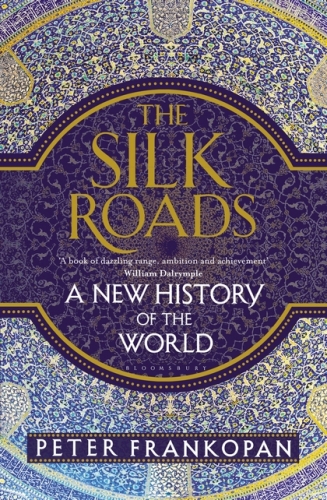 Peter Frankopan’s book is more factual but also enables to criticize the Western arrogant attitude namely in Iran. The chapters in his book dedicated to old Persia and modern Iran would allow diplomats to settle bases for a renewed cooperation between European powers and Iran, provided, of course, that Europeans really would abandon the guidelines dictated by NATO and the United States. Eurasianism compels you to study history more thoroughly than the present-day Western way of leading policies in the world. Facts shouldn’t be ignored or disregarded simply because they don’t fit into the schemes of the superficial interpretation of the Enlightenment the Western powers are currently handling, provoking at the same time a concatenation of catastrophes.
Peter Frankopan’s book is more factual but also enables to criticize the Western arrogant attitude namely in Iran. The chapters in his book dedicated to old Persia and modern Iran would allow diplomats to settle bases for a renewed cooperation between European powers and Iran, provided, of course, that Europeans really would abandon the guidelines dictated by NATO and the United States. Eurasianism compels you to study history more thoroughly than the present-day Western way of leading policies in the world. Facts shouldn’t be ignored or disregarded simply because they don’t fit into the schemes of the superficial interpretation of the Enlightenment the Western powers are currently handling, provoking at the same time a concatenation of catastrophes. 
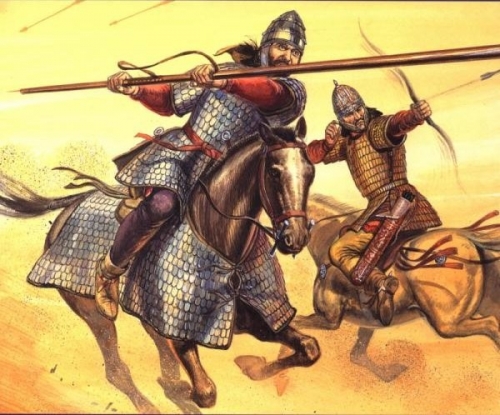
 The German historian Reinhard Schmoeckel hypothezises that even the Merovingians, from whom Chlodowegh (Clovis for the French) descended, were partly Sarmatian and not purely Germanic. In Spain, historians admit that among the Visigoths and the Sueves that invaded the peninsula as Germanic tribes were accompanied by Alans, a horsemen people from the Caspian and Caucasus area. The traditions they brought to Spain are at the origin of the chivalry orders that helped a lot to perform the Reconquista. As you say, all that has been neglected but now things are changing. In my short essay on the geopoliticians in Berlin between both world wars, I remember a poor sympathetic professor who tried to coin a new historiography in Europe taking the Eastern elements into accounts but whose impressive collection of documents were completely destroyed during the battle for Berlin in 1945. His name was Otto Hoetzsch. He was a Slavic philologist, a translator (namely during the negotiations of the Rapallo Treaty, 1922) and a historian of Russia: he pleaded for a common European historiography stressing the convergences and not the differences leading to catastrophic conflicts like the German-Russian wars of the 20th century. I wrote that we all have to walk in his footsteps. I suppose you agree.
The German historian Reinhard Schmoeckel hypothezises that even the Merovingians, from whom Chlodowegh (Clovis for the French) descended, were partly Sarmatian and not purely Germanic. In Spain, historians admit that among the Visigoths and the Sueves that invaded the peninsula as Germanic tribes were accompanied by Alans, a horsemen people from the Caspian and Caucasus area. The traditions they brought to Spain are at the origin of the chivalry orders that helped a lot to perform the Reconquista. As you say, all that has been neglected but now things are changing. In my short essay on the geopoliticians in Berlin between both world wars, I remember a poor sympathetic professor who tried to coin a new historiography in Europe taking the Eastern elements into accounts but whose impressive collection of documents were completely destroyed during the battle for Berlin in 1945. His name was Otto Hoetzsch. He was a Slavic philologist, a translator (namely during the negotiations of the Rapallo Treaty, 1922) and a historian of Russia: he pleaded for a common European historiography stressing the convergences and not the differences leading to catastrophic conflicts like the German-Russian wars of the 20th century. I wrote that we all have to walk in his footsteps. I suppose you agree. 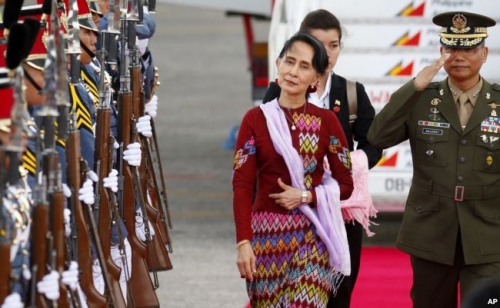


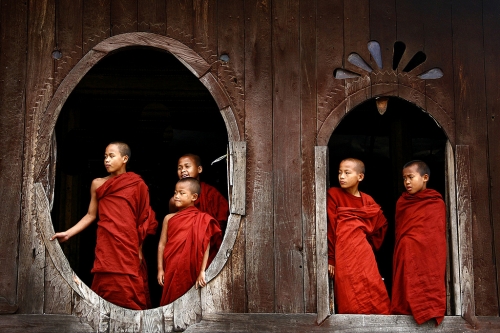
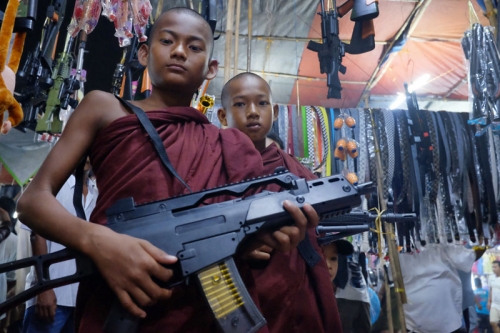

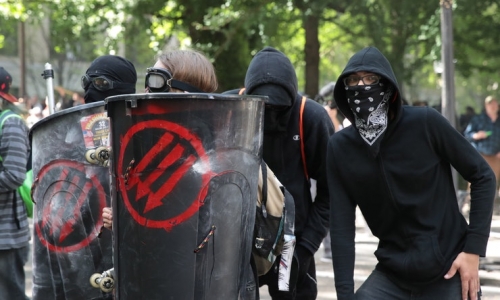

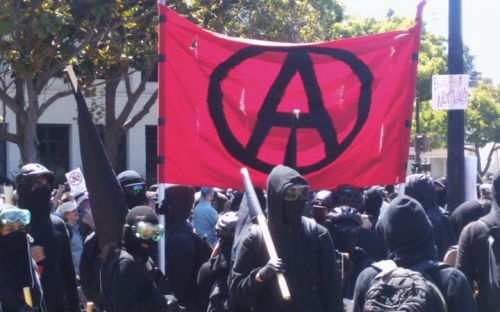
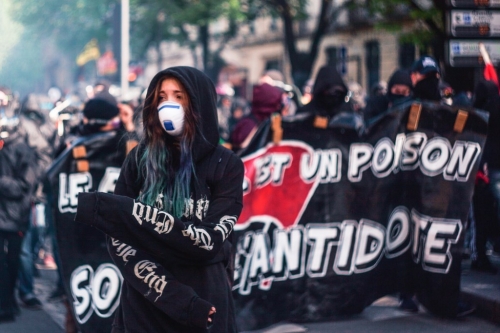
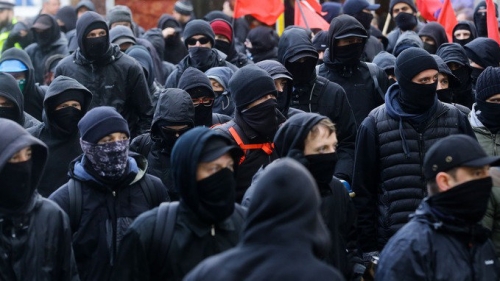
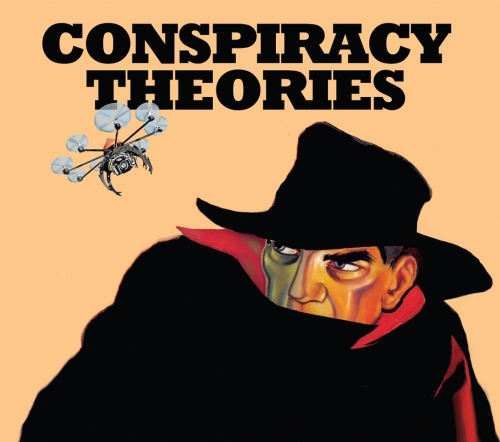
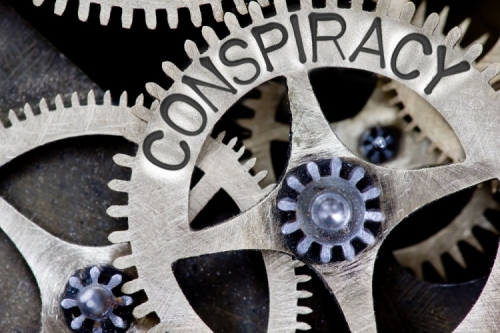
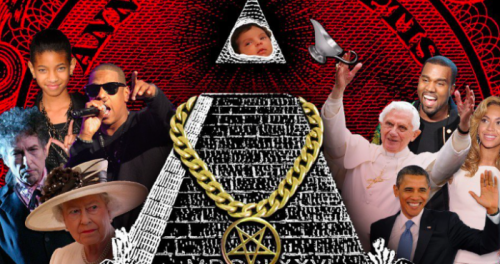


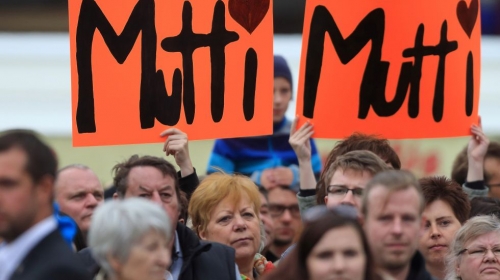

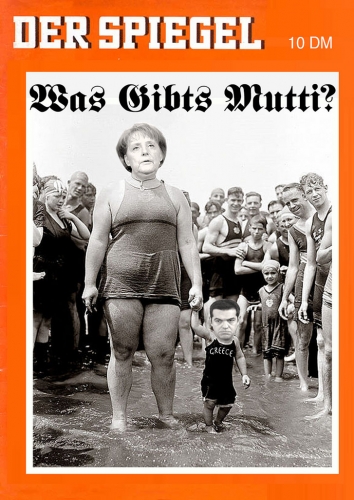
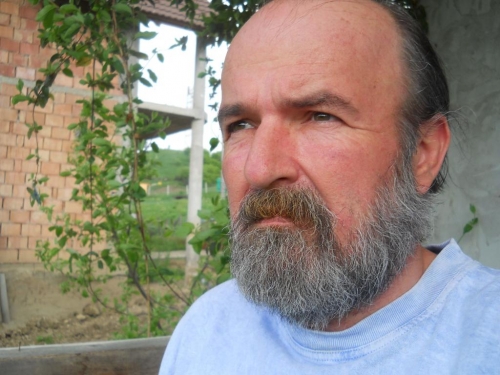
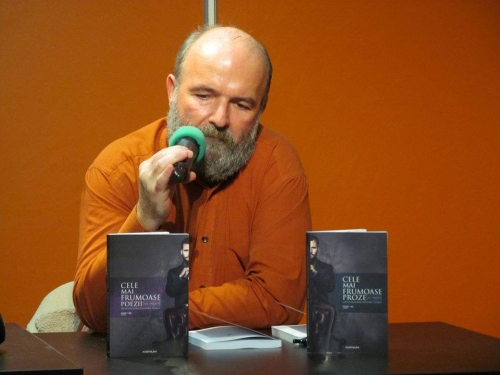

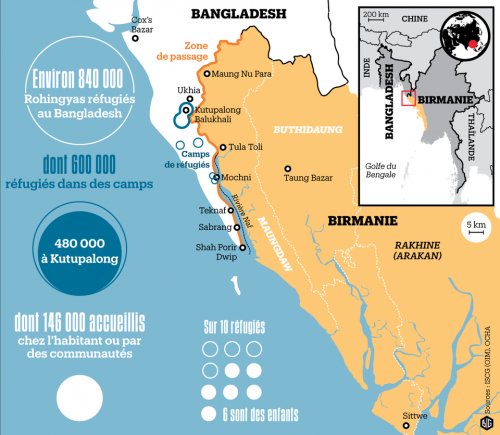
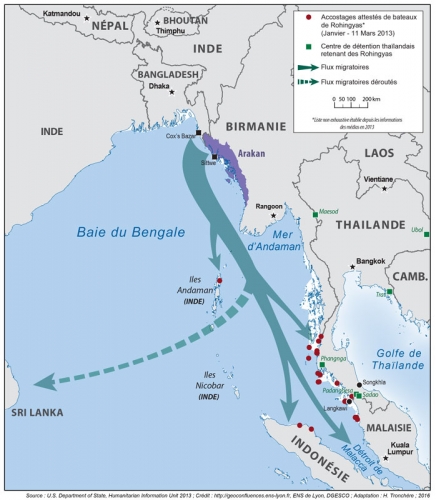

 •
• 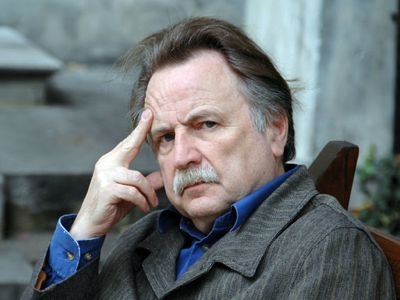
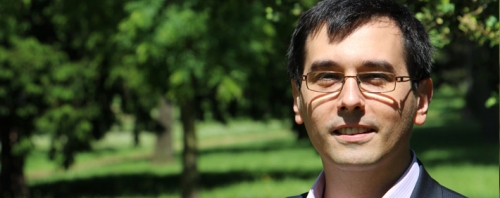
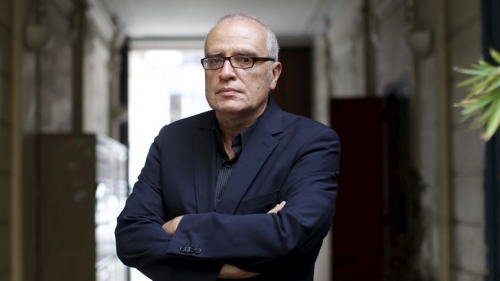

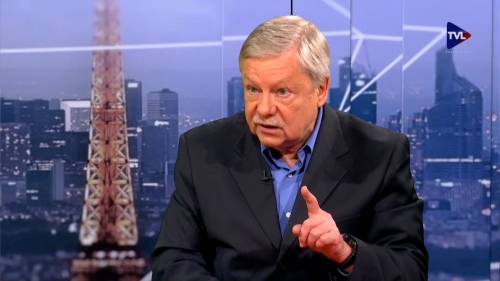
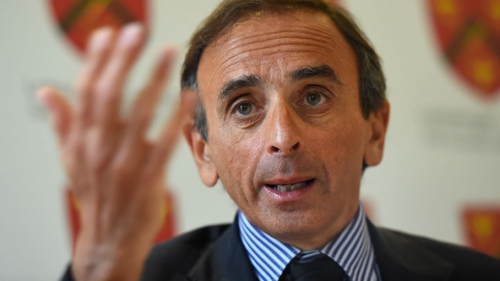

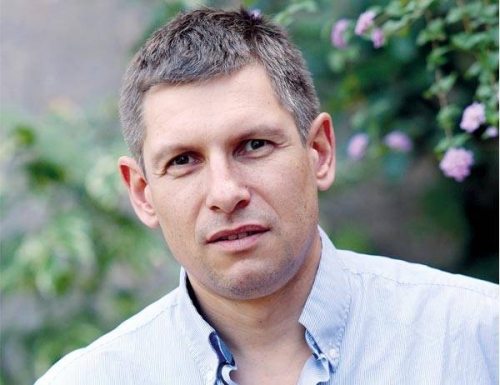


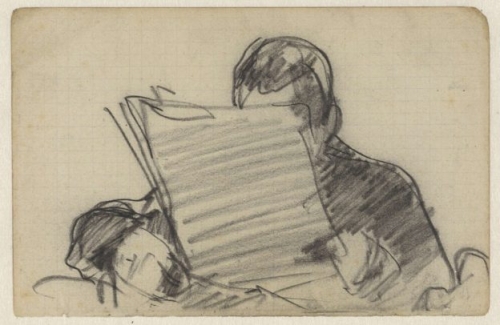

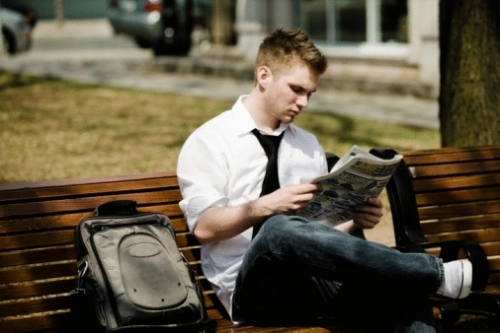

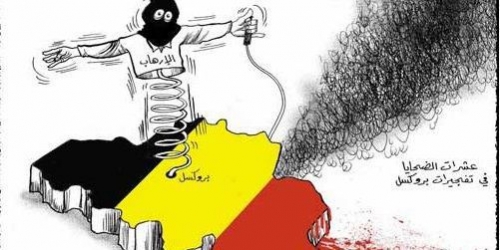
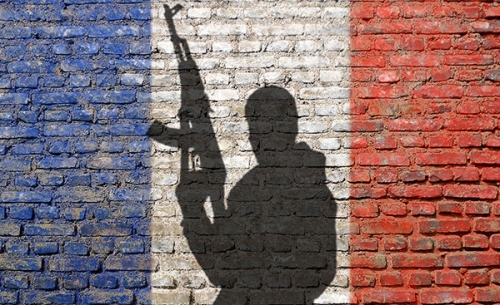
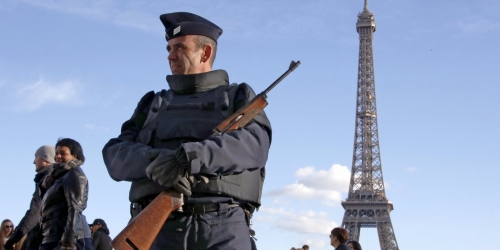

 Les Etats-Unis ont mis en place des bases militaires et déployé des troupes dans toute l'Amérique Latine. Elles dépendent du Southern Command. www.southcom.mil/ De son côté la 4e flotte patrouille dans toutes les eaux avoisinantes. Y préparent-ils une guerre de grande ampleur? Veulent-ils occuper des territoires? Le gouvernement a toujours répondu que ces forces étaient là pour combattre des terroristes ou des narco-trafiquants.
Les Etats-Unis ont mis en place des bases militaires et déployé des troupes dans toute l'Amérique Latine. Elles dépendent du Southern Command. www.southcom.mil/ De son côté la 4e flotte patrouille dans toutes les eaux avoisinantes. Y préparent-ils une guerre de grande ampleur? Veulent-ils occuper des territoires? Le gouvernement a toujours répondu que ces forces étaient là pour combattre des terroristes ou des narco-trafiquants.